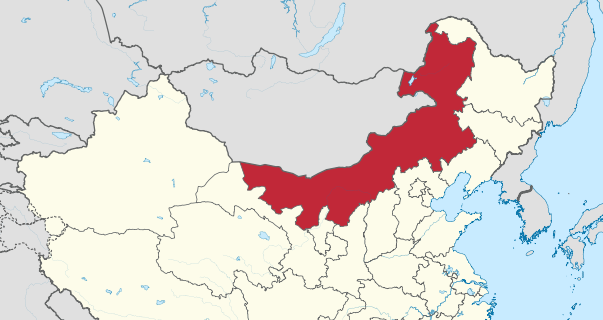You have to read this New York Times article pretty closely to catch that China’s destruction of its Inner Mongolian nomad cultures is probably about getting to the coal under their grazing lands:
In Xilinhot, a coal-rich swath of Inner Mongolia, resettled nomads, many illiterate, say they were deceived into signing contracts they barely understood. Among them is Tsokhochir, 63, whose wife and three daughters were among the first 100 families to move into Xin Kang village, a collection of forlorn brick houses in the shadow of two power plants and a belching steel factory that blankets them in soot.
[…]
Not everyone is dissatisfied. Bater, 34, a sheep merchant raised on the grasslands, lives in one of the new high-rises that line downtown Xilinhot’s broad avenues. Every month or so he drives 380 miles to see customers in Beijing, on smooth highways that have replaced pitted roads. “It used to take a day to travel between my hometown and Xilinhot, and you might get stuck in a ditch,” he said. “Now it takes 40 minutes.” Talkative, college-educated and fluent in Mandarin, Bater criticized neighbors who he said want government subsidies but refuse to embrace the new economy, much of it centered on open-pit coal mines.
Here’s the cultural cost:
In what amounts to one of the most ambitious attempts made at social engineering, the Chinese government is in the final stages of a 15-year-old campaign to settle the millions of pastoralists who once roamed China’s vast borderlands. By year’s end, Beijing claims it will have moved the remaining 1.2 million herders into towns that provide access to schools, electricity and modern health care.
[…]
But the policies, based partly on the official view that grazing harms grasslands, are increasingly contentious. Ecologists in China and abroad say the scientific foundations of nomad resettlement are dubious. Anthropologists who have studied government-built relocation centers have documented chronic unemployment, alcoholism and the fraying of millenniums-old traditions.
[…]
Nicholas Bequelin, the director of the East Asia division of Amnesty International, said the struggle between farmers and pastoralists is not new, but that the Chinese government had taken it to a new level. “These relocation campaigns are almost Stalinist in their range and ambition, without any regard for what the people in these communities want,” he said. “In a matter of years, the government is wiping out entire indigenous cultures.”

Inner Mongolia Autonomous Region of China (Credit: Wikimedia)
Similar Topics from Arsenal For Democracy:


